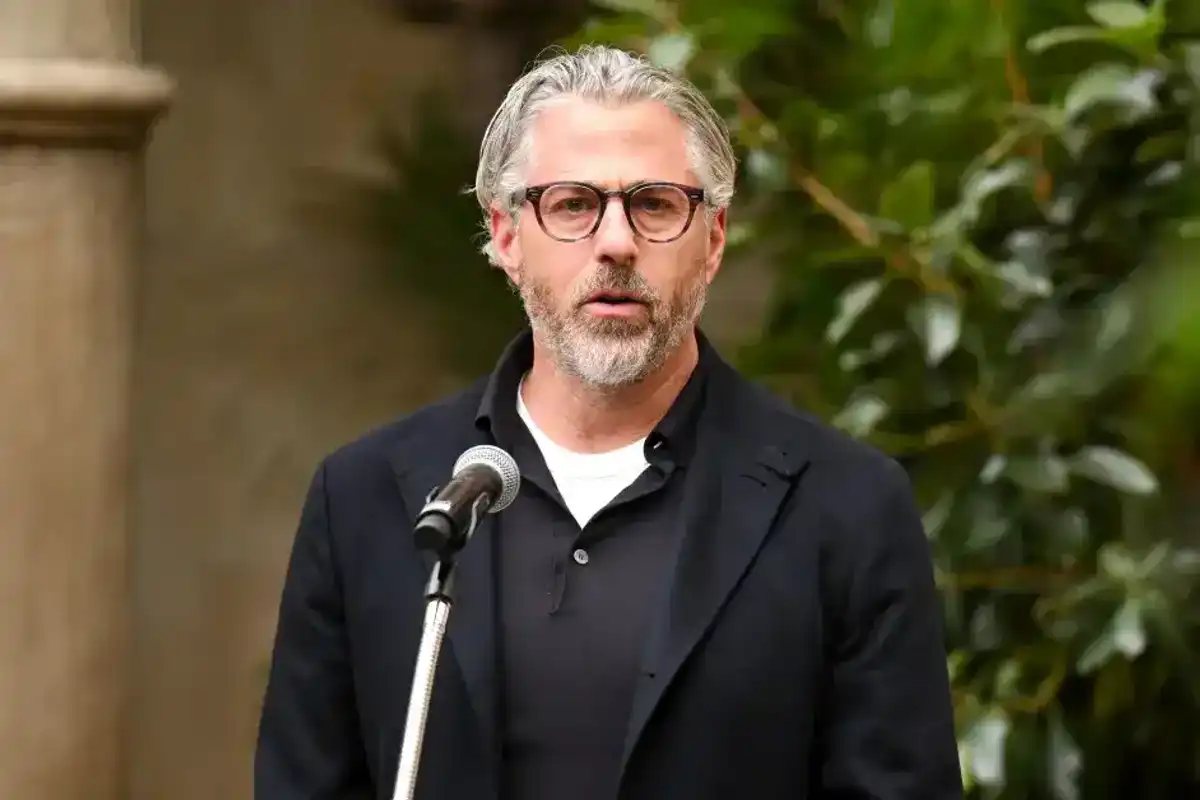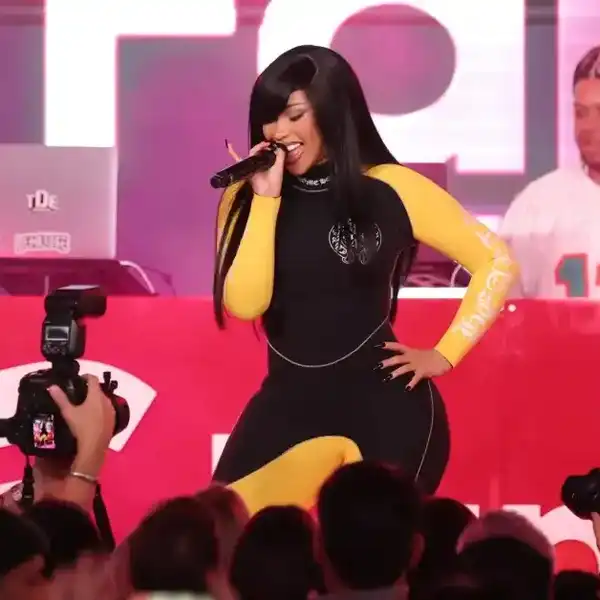Miranda Mulholland Interviews RIAA Chair Cary Sherman
Cary Sherman, the outgoing chairman and CEO of the Recording Industry Association of America (RIAA), sat down with artist, label owner and festival founder Miranda Mulholland, at the recent Music C

By Karen Bliss
Cary Sherman, the outgoing chairman and CEO of the Recording Industry Association of America (RIAA), sat down with artist, label owner and festival founder Miranda Mulholland, at the recent Music Canada year-in-review at Toronto’s The Great Hall, to “share memorable moments in his career,” that ranged from politics and policy to the personal.
Naturally, much of the chat for the industry members in attendance was about history and the changes that led to the recent passing of the Music Modernization Act on Oct. 11. But Sherman also revealed some fun facts about himself, including that his father was born and raised in Toronto, he is a first-generation American, his favourite album is Sgt. Pepper’s; he plays the piano; and Rihanna sent him a platinum award and note complimenting his “platinum smile.”
“That's the first time I've ever gotten a gift from a major artist, and it's in my office and that is very, very cool,” Sherman said. He has worked at RIAA for over two decades.
The graduate of Cornell University and Harvard Law School joined RIAA in 1997 as general counsel. In 2011, he replaced Mitch Bainwol as CEO; his successor is the current president, Mitch Glazier, whom he made a point to mention during his interview.
“Mitch was born to do this legislation, he really was,” said Sherman. “He is an amazing mastermind in terms of legislative strategy, but he also has an unbelievable personality, so that everybody in every sector — whether it be producers, managers, PR, publishers —would go to him for — ‘How can we do this?’ and ‘How can we manage this particular member?’ and so on.
“Mitch really deserves the credit for getting this done through the Congress because bringing the industry together was an amazingly important piece, but if you can’t deliver on the actual legislative tactics inside the Congress, this would not have happened.
“And then we all got to watch Trump take credit for the whole thing,” he quipped.
Below are some bullets from his 20-minute chat with Mulholland.
On the key piece of Music Modernization Act:
At a very high level, there are five pieces to the legislation — the most important is that it creates a blanket mechanical license. So instead of getting one mechanical license at a time, work by work, which is a compulsory license in the United States, and it’s very dysfunctional, you now file a piece of paper and get a blanket mechanical license and then you will pay royalties, along with reports of usage to a music licensing collective that will then have the responsibility for distributing the money to the right publishers and songwriters. That’s a huge improvement in efficiency over the existing system. Every digital musical service had to try and find out who owns every musical work and have its own database of that information and then make payments to all those people. This is going to be much more efficient to have a centralized database, which will be the authoritative source of the information and for all this money to go into this music licensing collective and be distributed to songwriters and publishers.
On spouses, building relationships and getting to know each other:
“This was a dozen years in the making. When I started off in the industry, which was 1974, my first job was to fight publishers and fight songwriters and to make sure that they didn’t get a bigger share of the pie than we did… It was a mess. It was very fractured community. Over time, as we realized that fighting for each piece of the pie simply means that the pie never gets larger because we’re not fighting together against the real people that we need to be fighting, which have now become the tech companies, we were hurting ourselves. And that in order to get past the history of the industry, we needed to construct an entirely different relationship. I never met with the CEO of ASCAP or BMI. The only time I met with the head of NMPA, which is music publishers, was when we had something specific to negotiate or fight. It was never to get together to talk about things.
So, we created a group of CEOs of the music industry associations that would get together twice a year to actually just sit and talk abut what’s going on and what issues you’ve got and why you’re taking the positions that you are and we’d talk them through, and so on. It became not only informative and educational, but it became a relationship and suddenly you knew the people you were dealing with. In fact, we specifically asked to have significant others, with spouses, come to these events to that we created relationships where you did not want to do something to offend some other group because you knew them personally; you knew their family. Twelve years later, we now can operate as a music community with an email…It took a dozen years of trust building, of conversation, of understanding where each other is coming from, to get to the point where you could reach compromises. The MMA was a series of compromises that everybody had to make to be able to get on the same page so that everybody could support everybody else.
On playing piano since the age of six:
Clearly have a gift for it because I had perfect pitch and I played by ear so I took to it very quickly, but I also knew that I did not have the discipline or the drive. One of the things I learned when I started writing songs — and I actually tried to get record companies to listen to them or radio stations to listen to them — is my God, it is difficult to sell yourself and sell your work and what a commitment you have to have in order to actually pursue this as a career. So, I decided not to [laughter]…I went to law school instead and I came into the back door. So it's been fun to be involved with music creators and music professionally. I feel like I’m able to give them something other than that my piano playing and my lyrics.
On an album that had a significant impact on him growing up:
I grew up during the Beatles, so it's hard to imagine anybody coming close in terms of the impact that The Beatles had on musically. The Sgt. Pepper's album was simply a breakthrough album and completely redefined what an album is.
Up until that time, songs were ditties; there wasn't a lot of structure to them. There was 1-4-5. This was now a studio album. This was not just singing a song in front of the microphone; you happened to do it in a studio, but it’s no different than performing on a stage. The Sgt. Pepper's album was actually a studio production that could not be reproduced on the stage because of what it created and it completely redefined the album concept. It redefined the future of music, and it opened up music in ways that nothing ever else had.
On meeting Jay-Z and Rihanna:
Generally, I'm sure you realize that if you meet emerging artists, they’re normal people and you relate to that and talk to them, and have a real conversation, but when you meet somebody who is already famous, there is a wall around them that is very, very hard to penetrate. They can't trust anybody. They always think that somebody always wants something from them. I feel really bad for them because they can’t live normal lives. But as a result, you also come away with certain expectations about what they're going to be like.
I just assumed that Rihanna would be pretty cold and pretty distant and pretty difficult. She was none of those things. She was amazingly warm and friendly…she sent me a platinum award with something about my platinum smile. That's the first time I've ever gotten a gift from a major artist; it's in my office and that is very, very cool. And Jay-Z, there’s somebody, he just loves the idea of being able to talk with somebody about what's going on in the music business, what's the future and how does this thing actually work and where is the money coming from. I mean, he is a businessman and he really wants to understand the business. And so, meeting somebody who actually does it professionally is an opportunity for them. And I find that so often there are so many more artists that you would not expect, who really want to engage.

















